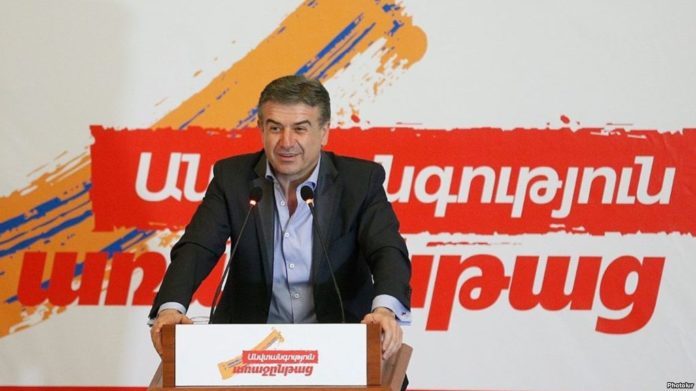YEREVAN (RFE/RL) — The ruling Republican Party of Armenia (HHK) was on course to score a landslide victory in Sunday’s parliamentary elections amid opposition allegations of vote buying and other irregularities.
The government-controlled Central Election Commission (CEC) said early on Monday that with about 75 percent of the ballots counted, the HHK won 49.2 percent of the vote. This should be enough for it to have an absolute majority in Armenia’s new parliament and stay in power.
According to the preliminary vote results released by the CEC, businessman Gagik Tsarukian’s alliance was a distant second with 27.6 percent, followed by the opposition Yelk alliance (7.5 percent) and the Armenian Revolutionary Federation-Dashnaktsutyun (6.7 percent), the HHK’s junior coalition partner.
The five other election contenders looked set to fail to pass the 5 percent and 7 percent vote thresholds for being represented in the National Assembly set for political parties and alliances respectively. They included former President Levon Ter-Petrosian’s opposition Congress-HZhK alliance (1.6 percent) and the ORO alliance led by former Defense Minister Seyran Ohanian (2.1 percent).
Opposition forces as well as independent election observers reported various irregularities, notably vote buying, throughout Sunday’s voting. The Citizen Observer, a coalition of Armenian civic groups that deployed over 3,000 monitors across the country, alleged numerous instances of electoral violation and manipulation. Those included vote buying, voter intimidation, and the presence of unauthorized persons inside polling stations.
“As a result, the issue of public trust in the elections has not been solved,” the Citizen Observer said in a statement released on Sunday evening. It said the elections did not mark “an improvement of electoral processes in the country.”








